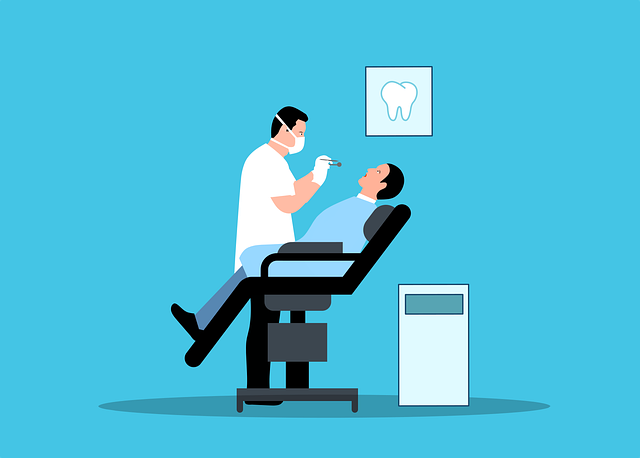In the ever-evolving landscape of healthcare, the siloed approach to treating isolated systems is giving way to an integrated understanding of the human body. Nowhere is this shift more critical than in the recognition of the oral-systemic connection—a relationship that illuminates how oral health intricately influences cardiovascular, metabolic, and cognitive well-being. Advanced dental care, with its preventive, diagnostic, and therapeutic reach, stands at the intersection of medicine and dentistry, offering both a window into systemic disorders and a tool for intervening before they take root.
Beyond the Mouth: A Gateway to Systemic Health
The mouth is more than a space for speech, eating, and expression—it is a dynamic ecosystem teeming with microbial life, vascular highways, and immunological interfaces. It serves as both a mirror and a gatekeeper to systemic health. The gums, tongue, teeth, and salivary glands provide early indicators of inflammation, infection, and nutritional deficiency. In advanced dental care, practitioners are trained not just to observe these signs but to interpret them as clues to broader systemic issues.
When pathogenic bacteria in the mouth breach mucosal barriers or proliferate due to poor hygiene and lifestyle habits, they can incite chronic inflammation. This low-grade, sustained inflammation is a driver of disease beyond the oral cavity. Once it enters the bloodstream, it can disrupt homeostasis, damage endothelial lining, and amplify immune responses across the body. This biological domino effect underpins the oral-systemic connection.
Cardiovascular Health and the Burden of Oral Inflammation
Cardiovascular disease remains a leading cause of morbidity and mortality worldwide, and inflammation is a key contributor to its development. Studies increasingly implicate periodontal disease—chronic inflammation of the gums—as a significant risk factor for atherosclerosis and other cardiac conditions. The bacteria associated with periodontitis, such as Porphyromonas gingivalis and Fusobacterium nucleatum, have been found in arterial plaques. Their presence suggests that oral pathogens travel through the bloodstream, contributing to the formation of blockages that can lead to heart attacks or strokes.
Advanced dental care addresses this threat not only by treating existing periodontal conditions but by employing diagnostic technologies that track inflammation levels and microbial profiles. Salivary diagnostics, genetic testing, and precision cleanings go beyond surface-level care to proactively mitigate cardiovascular risk. Dentists who collaborate with cardiologists can provide a seamless continuum of care, ensuring that oral inflammation does not silently degrade vascular health.
Metabolic Health and the Oral-Insulin Nexus
Metabolic disorders such as type 2 diabetes have a bidirectional relationship with oral health. Elevated blood sugar levels impair circulation and immune function, making the gums more susceptible to infection. At the same time, chronic oral infections increase systemic inflammation, which can worsen insulin resistance. This cyclical relationship means that uncontrolled periodontitis may not simply coexist with diabetes—it may contribute to its progression.
Advanced dental care can interrupt this cycle. Through early screening protocols, dentists can identify signs of metabolic dysfunction long before a diagnosis is made. Inflammation levels, oral dryness, tissue healing rate, and gum bleeding can all suggest impaired glucose regulation. Likewise, personalized care plans can be developed in conjunction with endocrinologists, integrating gum therapy with dietary guidance and glycemic monitoring. The result is not just improved oral hygiene, but enhanced metabolic resilience.
Moreover, innovations like laser-assisted periodontal therapy, non-invasive plaque detection, and biofilm-targeting interventions make it possible to treat patients with diabetes without exacerbating their condition. This strategic approach lowers inflammation and improves insulin sensitivity, showing that dental care can be an active participant in metabolic health management.
Cognitive Health and the Role of Oral Pathogens
The oral-systemic connection also reaches into the realm of neurodegenerative disease. Emerging evidence suggests that chronic periodontal infections may contribute to cognitive decline and even conditions such as Alzheimer’s disease. Pathogens from the mouth can cross the blood-brain barrier, initiating inflammatory responses and disrupting neuronal function. Gingipains—enzymes secreted by Porphyromonas gingivalis—have been detected in the brains of Alzheimer’s patients, suggesting a direct microbial assault on cognitive integrity.
Advanced dental care responds to this threat through precision diagnostics and preventive protocols. Salivary testing for pathogenic markers, advanced imaging for bone density loss, and cognitive health screening allow dental professionals to identify patients at elevated risk. Interdisciplinary collaboration with neurologists and geriatricians ensures that oral health is recognized as a potential contributor to cognitive decline and addressed accordingly.
Furthermore, the practice of oral care itself influences brain health. Chewing stimulates hippocampal function, and pain-free dental conditions support better nutrition and social engagement—both protective factors against cognitive degeneration. When oral health deteriorates, the cascade affects mood, cognition, and overall neurological resilience.
A Holistic Future for Dental Medicine
As advanced Dublin dental care integrates deeper with systemic medicine, its role in preventive health will expand. Dental professionals trained in systemic pathophysiology, inflammation science, and collaborative care will become essential allies in managing chronic conditions. Patients will increasingly view oral care not as routine hygiene but as a pillar of overall wellness.
The oral-systemic connection is no longer theoretical—it is a practical roadmap for reducing disease burden and enhancing quality of life. From the heart to the brain to metabolic pathways, the mouth is both messenger and moderator. Advanced dental care, when informed by systemic understanding and cutting-edge technology, has the power to transform not just smiles but survival.








Leave a Reply